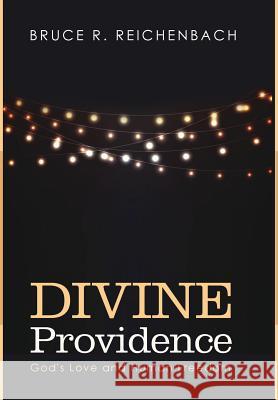Divine Providence » książka
Divine Providence
ISBN-13: 9781498292870 / Angielski / Twarda / 2016 / 346 str.
Divine Providence
ISBN-13: 9781498292870 / Angielski / Twarda / 2016 / 346 str.
(netto: 240,53 VAT: 5%)
Najniższa cena z 30 dni: 251,15
ok. 16-18 dni roboczych.
Darmowa dostawa!
We ask God to involve himself providentially in our lives, yet we cherish our freedom to choose and act. Employing both theological reflection and philosophical analysis, the author explores how to resolve the interesting and provocative puzzles arising from these seemingly conflicting desires. He inquires what sovereignty means and how sovereigns balance their power and prerogatives with the free responses of their subjects. Since we are physically embodied in a physical world, we also need to ask how this is compatible with our being free agents. Providence raises questions about God's fundamental attributes. The author considers what it means to affirm God's goodness as logically contingent, how being almighty interfaces with God's self-limitation, and the persistent problems that arise from claiming that God foreknows the future. Discussion of these divine properties spills over into the related issues of why God allows, or even causes, pain and suffering; why, if God is all-knowing, we need to petition God repeatedly and encounter so many unanswered prayers; and how miracles, as ways God acts in the world, are possible and knowable. Throughout, the author looks at Scripture and attends to how providence deepens our understanding of God and enriches our lives. ""Bruce Reichenbach is a philosopher who situates his reflections in the context of a thorough engagement with biblical teaching about God's action in the world. Recommended for those who wish to scrutinize the philosophical and theological assumptions that are foundational for a doctrine of providence."" --William Hasker, Former Editor, Faith and Philosophy ""Entering into the widespread debates about providence and open theism, Bruce Reichenbach provides us with a rich and detailed feast in this new book.His approach is not narrowly philosophical, but holistic, rightly engaging biblical, theological, and spiritual dimensions of this important doctrine.While not every dish will suit every taste, the work is surprisingly easy to digest, while still being intellectually nourishing. I recommend this to anyone interested in learning more about the God we worship, a God who provides out of love."" --Alan G. Padgett, Professor of Systematic Theology, Luther Seminary ""In a day where sound bites and tweets have, for many, taken the place of sustained, careful, constructive thinking on demanding theological and philosophical issues, Bruce Reichenbach offers a feast of carefully researched and reasoned reflections on one of the most difficult of all areas: divine providence.While we hold several fundamentally different theological commitments, I share with the author a commitment to the crucial importance of the issues with which he deals so skillfully, and I appreciate also the clarity and thoroughness of his writing.For one working from commitments of libertarian freedom and general sovereignty, I know of no better treatment of divine providence.Although readers may draw different conclusions, all will be both stimulated and informed deeply from this excellent treatment."" --Bruce A. Ware, T. Rupert and Lucille Coleman Professor of Christian Theology, Southern Baptist Theological Seminary Bruce R. Reichenbach is Professor Emeritus at Augsburg College, where he taught philosophy for forty-three years. He has also taught at Luther Seminary and at various universities and seminaries in Lesotho, Kenya, China, Liberia, and Ghana. His books include Epistemic Obligations, The Law of Karma, Evil and a Good God, Is Man the Phoenix?, and Reason and Religious Belief (co-authored)."











